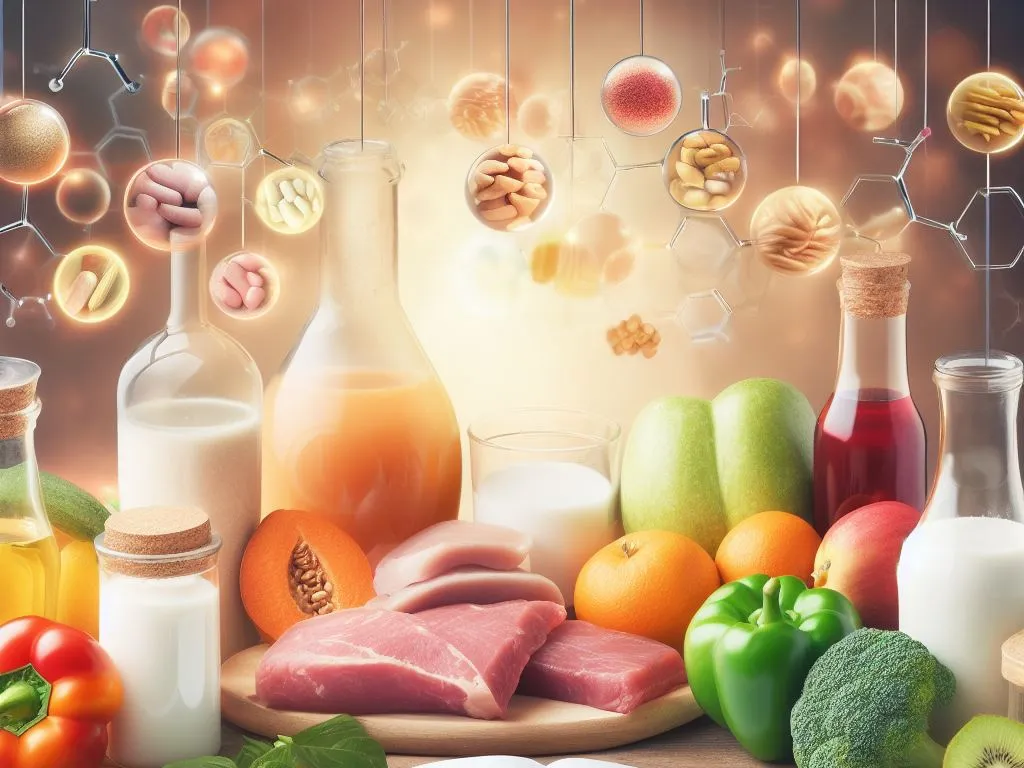Recent research indicates that animal and plant proteins differ in their nutritional value, challenging the assumption of their equivalence.

When matching the recommended ounce-equivalent servings of animal and plant protein foods outlined in the Dietary Guidelines for Americans, essential amino acid availability can differ among both younger and older adults.
Researchers at Purdue University found that protein obtained from two-ounce-equivalents (oz-eq) of animal-based foods exhibits greater essential amino acid (EAA) bioavailability compared to an equivalent quantity from plant-based sources.
Understanding a meal’s protein quality, specifically its EAA content, significantly influences the body’s utilization of amino acids for muscle and overall protein synthesis.
The Dietary Guidelines for Americans (DGAs) highlight the importance of incorporating various protein foods in ounce-equivalent portions that offer similar nutritional profiles. For instance, an oz-eq translates to one ounce of meat, a whole egg, 0.25 cups of beans, or 0.5 ounces of nuts.
Dr. Wayne Campbell, the lead researcher and a professor in the Department of Nutrition Science at Purdue University, suggests that the DGAs’ claim of protein foods being ‘equivalent’ and possessing ‘similar nutritional content’ lacks clarity. He notes that protein foods vary in their energy, nutrient content, and protein quality.
Moreover, there’s limited knowledge about how consuming oz-eq amounts of protein from diverse sources in a mixed meal affects the body’s ability to digest and utilize protein effectively.
Among certain groups, especially younger adults and older adults with increased nutrient requirements, there might be a vulnerability to insufficient diversity in protein options. This lack of variety could lead to an inadequate intake of high-quality, nutrient-rich protein sources.
Hence, researchers aimed to investigate whether the consumption of two oz-eq servings of animal-based versus plant-based protein foods within a mixed whole foods meal had varying effects on essential amino acid (EAA) bioavailability for protein synthesis in these specific populations.
In this study’s setup, 30 healthy young adults and 25 older adults took part in two cross-over randomized controlled trials. Each participant underwent four distinct 300-minute trials, spaced at least three days apart.
To ensure unbiased results, the investigators remained unaware of the sequence in which participants were assigned their protein foods until all testing was completed and the data were analyzed.
Throughout the trial periods, participants visited the clinic to consume a standardized meal containing two oz-eq of either animal-based protein foods (such as unprocessed lean pork loin or scrambled whole eggs) or plant-based protein foods (like black beans and raw sliced almonds).
Blood samples were collected at baseline and at 30, 60, 120, 180, 240, and 300 minutes after the meal to assess essential amino acid (EAA) bioavailability, blood sugar levels, and insulin responses.
Dr. Gavin Connolly, a clinical trials project manager and research associate in the Department of Nutrition Science at Purdue University, summarizes the outcomes succinctly.
“As we anticipated prior to this study, meals containing two oz-eq of animal-based protein foods led to higher levels of essential amino acids (EAAs) in the bloodstream compared to equivalent servings of plant-based protein foods in both young and older adults, individually and collectively,”
Dr. Gavin Connolly
He further highlights that there were no discernible differences in EAA availability between the two age groups.
Dr. Connolly emphasizes that animal-based proteins, derived from unprocessed lean pork loin and scrambled eggs, are more proficient in supplying EAAs, crucial for our body’s protein or muscle synthesis.
“This aspect holds significance in maintaining muscle and overall body health, influencing physical performance throughout one’s life,”
Key findings
- Lean pork demonstrated higher essential amino acid (EAA) bioavailability compared to eggs, irrespective of age groups (young or older adults) or when both were considered together.
- No significant differences were observed in EAA bioavailability between black beans and almonds.
- There were no notable distinctions in EAA bioavailability between young and older adults.
Limitations of the study
“Likely, the portion sizes of the protein foods in our study may not accurately represent the quantities typically consumed by young or older adults in their daily or weekly meals,”
Dr. Connolly
Additionally, there were no direct assessments of changes in muscle protein synthesis or overall body protein balance in response to meals comprising different protein sources, he elaborates.
Further research is essential to gain a deeper understanding of how animal-based versus plant-based protein foods might impact muscle health and overall well-being across different life stages, thereby contributing to healthy aging.
Public health nutrition implications
The study’s authors propose that these findings could significantly influence guidance provided in public health nutrition and might prompt a reevaluation of how various protein sources are equated within the protein foods group based on an ounce-equivalent (oz-eq) basis across different life stages in future Dietary Guidelines for Americans (DGAs).
“These outcomes are particularly relevant to the DGA’s advice advocating increased consumption of plant-based foods. While acknowledging the health benefits of plant-based diets, incorporating guidance on the importance of nutrient-rich animal-based protein foods as high-quality protein sources becomes crucial when offering dietary recommendations”
Dr. Campbell
https://www.mdpi.com/2072-6643/15/13/2870
https://www.clinicalnutritionjournal.com/article/S0261-5614(17)31357-2/fulltext
https://www.sciencedirect.com/science/article/pii/S0022316622001523?via%3Dihub